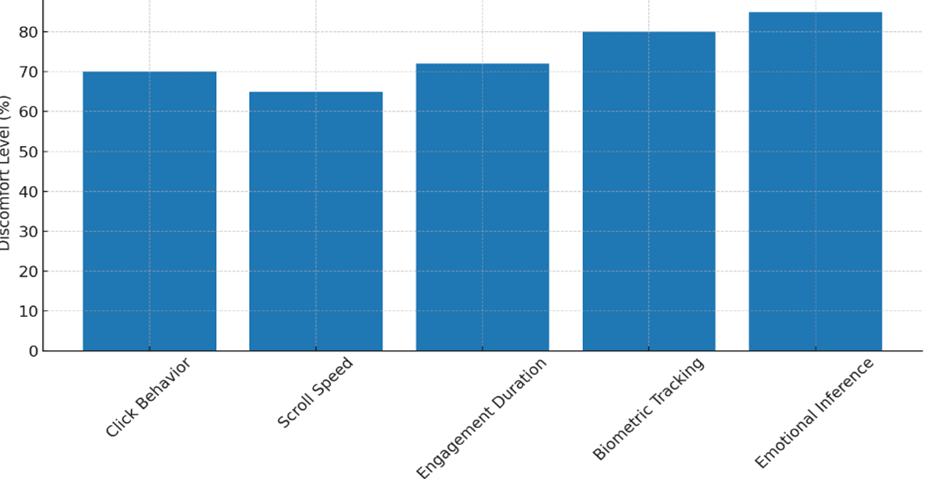Invisible Influences: A Study on User Perceptions, Awareness, and Opt-Out Preferences in AI-Based Psychological Tracking
Keywords:
Artificial Intelligence, Psychological Tracking, Behavioral Tracking, Biometric MonitoringAbstract
The growing integration of artificial intelligence (AI) into recommendation systems has enabled platforms to monitor not only user behavior but also infer psychological and emotional states through subtle tracking mechanisms. This study investigates user awareness, emotional responses, and opt-out preferences regarding such psychological tracking across major cities in Pakistan — Lahore, Karachi, and Islamabad. Using structured questionnaires, data were collected from 300 respondents to examine their familiarity with behavioral tracking features (e.g., click tracking, scroll speed, gaze detection, and emotional inference) and the associated discomfort they experienced. Results indicate that while users are generally aware of overt tracking (e.g., click behavior: 80%), awareness sharply declines for more covert methods like biometric monitoring (30%) and emotional inference (20%). Emotional discomfort was highest in response to emotion-based recommendations (85%) and biometric features (80%), with over 70% of respondents expressing a desire to opt out of such features. City-wise, users in Lahore showed the highest exposure to tracking consent banners (78%). The study highlights significant gaps in user understanding of AI tracking mechanisms, as well as growing concerns about mental privacy, algorithmic manipulation, and lack of informed consent. These findings call for more transparent AI practices, stronger digital rights protections, and regulatory measures to ensure ethical user engagement.








